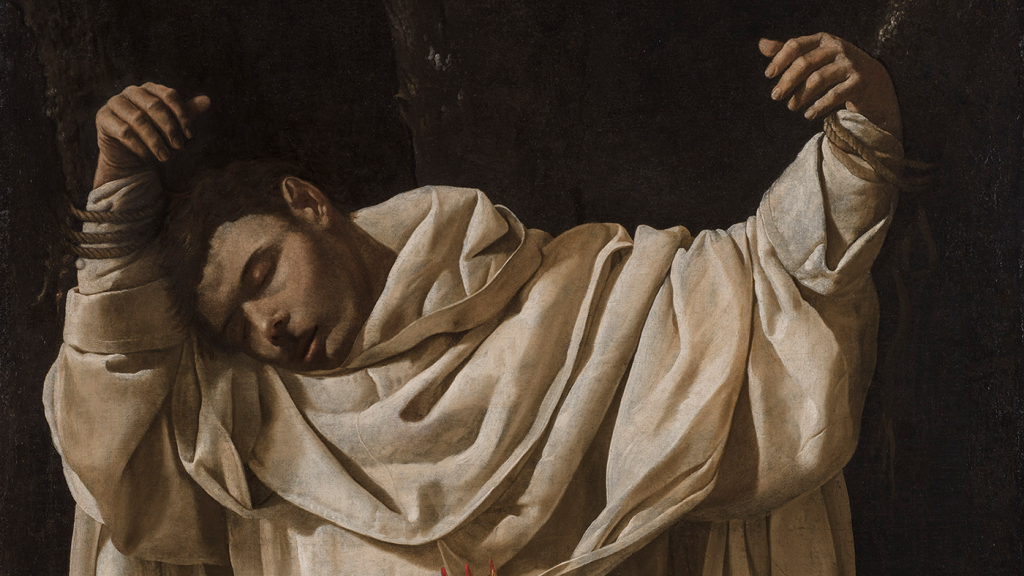Today in 1598 saw the baptism of just-born Spanish artist Francisco de Zurbarán. He is famous for his religious paintings, which often depicted the rigours of monastic life, with dramatic lighting and dark backgrounds (as in his painting of San Serapio above). He has been called the Spanish Caravaggio.
The journalist, Presbyterian minister and slavery abolitionist Elijah Parish Lovejoy was murdered by a pro-slavery mob in Alton, Illinois, today in 1837. Lovejoy was editor of the Alton Observer, an abolitionist newspaper, whose presses were hidden in a local warehouse. When the mob attacked the warehouse, Lovejoy was shot several times and died at the scene. His death was seen as a martyrdom by other abolitionists, including John Brown, who responded to news of Lovejoy’s death by saying, ‘Here, before God… I consecrate my life to the destruction of slavery.’
William Franklin Graham (aka Billy Graham), was born to farming parents in Charlotte, North Carolina, today in 1918. The pioneer and master of mass evangelism first came to fame for his 1949 campaign in Los Angeles. His meetings were called ‘rallies’ or ‘crusades’, a careless evocation of Hitler at Nuremberg and the Crusaders in the Holy Land, associating brother Billy with the two most disreputable missions in history. Despite that, it has been credibly claimed that his voice was heard by more people than anyone else in history speaking about Jesus Christ.
St Vincente Liêm, who was born to northern Vietnamese Catholic parents, and became a Dominican priest, suffered death by beheading today in 1773. He was declared to be a saint by Pope John Paul II in 1988, along with 116 others who are known as the Martyrs of Vietnam – 96 of them Vietnamese nationals, and all of them killed between 1625 and 1886. The group represents the hundreds of thousands of Christians who died for their faith during this period of Vietnamese history.
The Sixth Ecumenical Council (there were seven in total) opened in Constantinople today in 680. Bishops and priests met in a hall of the imperial palace and spent the next 10 months arguing over whether Jesus had two wills (human and divine) or just one, which was causing a lot of people to lose their tempers at the time. The most crazy moment of the council occurred when a priest who wanted to prove his theology was 100 per cent correct had a corpse brought in, which he announced he would resurrect, without much success.
